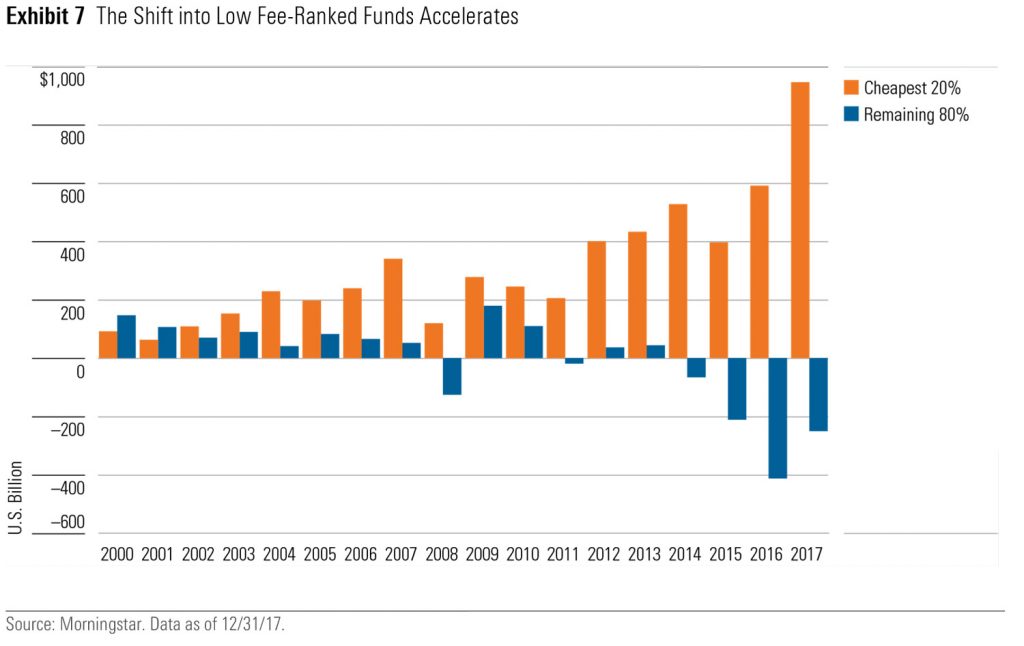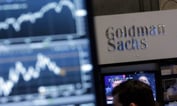Owning shares in a mutual fund or ETF has never been cheaper. According to Morningstar’s annual fund fee study, the asset-weighted fee for roughly 25,000 funds and ETFs averaged 0.518% in 2017, down from 0.562% in 2016.
The 8% drop was the biggest year-over-year decline since 2000, when Morningstar began tracking the data, and represents more than $4 billion in savings for investors, according to Morningstar.
Driving the decline were investor preference for low-cost funds — flows into the cheapest 20% of funds within different categories surged 60% — and fee reductions by active funds.

(Related: These Actively Managed Funds Tie Fees to Performance)
“The cheapest 20% of funds raked in nearly $1 trillion last year while the rest of the industry saw net outflows of approximately $250 billion,” said Patricia Oey, senior manager research analyst at Morningstar, in a statement. “The message investors are sending is crystal clear — cost counts.”
Passive funds were the biggest beneficiaries of these flows, accounting for 70% of new inflows; lower cost actively managed funds accounted for the rest.
(Related: ETF Fees Are the Top Factor in Choosing Funds: Survey)
The average asset-weighted expense ratio for passive funds fell from 0.16% in 2016 to 0.15% in 2017, while the asset-weighted expense ratio for actively managed funds dropped from 0.75% to 0.72%, as investors moved funds out of costlier funds into cheaper ones.









 April 30, 2018 at 10:02 AM
April 30, 2018 at 10:02 AM











